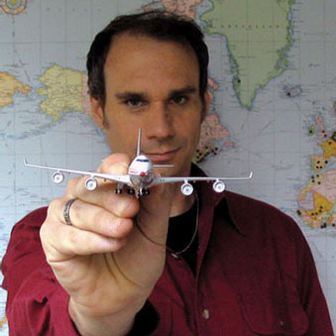Travel News
Ask a Pilot’s Patrick Smith on JetBlue Pilot Clayton Osbon
Last week everyone was talking about JetBlue pilot Clayton Osbon. With limited accounts of the incident released, Peter sat down with Ask a Pilot‘s Patrick Smith to sort out the truth from the rumor and to see what this incident says about today’s commercial pilots.
Peter Greenberg: We see stories all the time about passengers or every once in a while a flight attendant losing their cool mid-air. But when you read stories about passengers having to restrain the pilot we’re talking about a rather interesting aberration aren’t we?
Patrick Smith: This was extraordinarily unusual. In the wake of this incident, I think a lot of people are unfortunately asking the wrong questions. People want to know if this incident is indicative of some larger unseen problem. Are there pilots out there ready to crack? Is the mental health of pilots not being evaluated properly by airlines and the government?
The other day I was asked if, “I think pilots should be randomly drug tested to find those who might be taking anti-depressants without the FAA knowing about it?” That kind of question stuck in my craw. Where is the precedent for this? Should we be putting the same attention on surgeons, and policemen and other professionals who are entrusted with our safety?
Why do we hold pilots to some really impossible standard? I mean pilots are human beings, and no profession whether it’s piloting, being an astronaut, or anything in-between is bulletproof against every human weakness. All the testing and evaluating in the world isn’t going to ward off every potential aberration. What happened on that plane could have happened in a taxi, an operating room, or a space shuttle. I think we just need to calm down and see this for what it was which was a one-in-a-billion, highly unusual circumstance.
PG: When you think about it there are more than 30,000 take offs and landings in a day and nothing like this has ever happened before and there is a reasonably good chance that it’s not going to happen with any degree of frequency again.
PS: There are close to 3 million people flying around the world everyday aboard tens of thousands of commercial flights and here this happened one time.
 PG: Patrick, you mentioned screening for drugs or alcohol. In the last couple years that when we’ve had a situation where pilots have come on the plane over the legal limit, the flight crew members have turned them in.
PG: Patrick, you mentioned screening for drugs or alcohol. In the last couple years that when we’ve had a situation where pilots have come on the plane over the legal limit, the flight crew members have turned them in.
PS: Correct. I should also point out that airline pilots undergo medical exams twice a year by an FAA-certified doctor. While there isn’t a psychological test per se, the doctor does evaluate the pilot on everything including mental health. Pilots can be ground for hundreds of reasons and those reasons can include anxiety and depression. On top of that some airlines do run their new pilots through separate specific psychological exams prior to being hired. On top of all that we’re subject to random alcohol or narcotics test. I mean what more do we want or expect?
PG: Most of the time when you hear a story like this it’s after a terrible crash when the National Transportation Safety Board (NTSB) has their human factors team try to do a psychological post mortem on what was going on with the cockpit crew that day. Where they happy? Were they financially in trouble? Had they just gotten a divorce? Were they under medication? I’m sure they’ll do a postmortem on this incident.
PS: We have to step back and realize that we’re hearing the details second hand and third hand from a media that is prone to not getting everything exactly right. Granted there is no excuse for scaring the daylights out of passengers. But we don’t know why he did what he did, we don’t know if he was dealing with some underlying medical issue that he didn’t even know about. We have to reserve judgment.
PG: Just two days ago I sat down with U.S. Secretary of Transportation Ray LaHood and I asked him about this incident and he said, “You know we’ve come a long way since 9/11 passengers are no longer passive when a situation like this happens they step up and get involved.”
PS: Passengers are very proactive these days, sometimes too proactive. However there are cases were they’ve sprung to action and kept a bad situation from getting worse.
Do you feel that airlines and pilots need more screening? Could this incident have been prevented?
For more pilot screening and security information, check out:
- Patrick Smith on the Security Industrial Complex Post 9/11
- Ask the Pilot: Legitimate Safety Concerns Versus Safety Scares in Air Travel
- The Icarus Award on Clayton Osbon
By Peter Greenberg for Peter Greenberg Worldwide Radio












